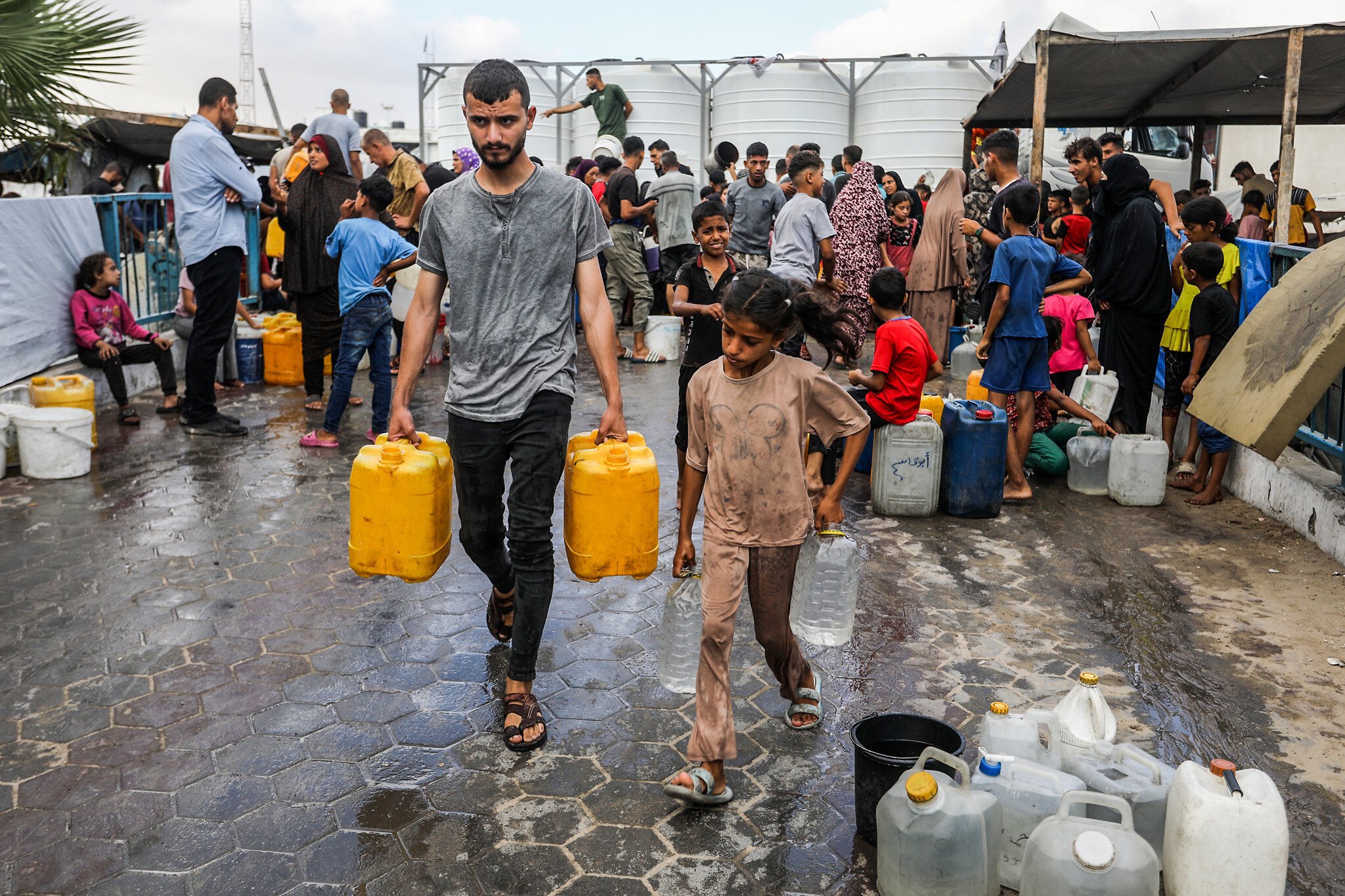Gaza’s Daily Struggle: Residents Face Unprecedented Scarcity of Water, Food, and Power
Gaza’s Daily Struggle: Residents Face Unprecedented Scarcity of Water, Food, and Power

The humanitarian situation in the Gaza Strip has reached a critical point, transforming daily life into an unrelenting struggle for basic necessities like water, food, and safety. As of early August 2025, residents continue to grapple with severe shortages, with many unable to secure even a single full meal or a restful night’s sleep.
Anas Arafat, a father of three in Gaza City, described the constant battle for survival. Despite having a relatively better situation than many others, including access to a functioning bathroom and some savings, his daily existence is one of profound hardship. He recounted spending hours searching for water for washing and drinking, often finding only unsafe options or facing exorbitant prices. This critical water scarcity is exacerbated by extensive infrastructure damage and the offline status of Gaza’s desalination plant since March 2025, leaving homes without running water.
Food security is equally dire. Families often subsist on one or two meager meals a day, typically consisting of lentils or pasta, if available. Mouin Hilu, a father of ten, shared that his family often goes to bed hungry, dependent on the hope of aid or a lucky find in the volatile local markets. While Israel recently announced it would again allow commercial goods into the Strip, prices remain astronomically high, and much of the available market goods are suspected to come from looted aid. International organizations, like World Central Kitchen, reported on August 1 that their ability to provide meals has significantly dropped due to military restrictions, falling far short of the dire need.
Beyond food and water, Gaza faces a complete lack of electricity. Since October 2023, Israel cut off its supply, and Gaza’s power station is non-operational. This leaves homes in darkness, forcing residents to rely on candlelight and hand-washing clothes. Charging cellphones, a critical link to the outside world, has become a costly black market service.
The economic landscape is shattered; most private businesses are closed, and unemployment is universal. Even those with savings struggle to access their funds due to closed banks and predatory commission fees charged by private brokers. The absence of internal security forces has also led to widespread lawlessness. Schools and universities remain shuttered, leaving children confined and struggling with hunger, their simple requests for a banana highlighting the profound deprivation. Despite the overwhelming challenges, a fragile hope persists among residents for increased aid and a return to some semblance of normalcy.
Disclaimer: This content is aggregated from public sources online. Please verify information independently. If you believe your rights have been infringed, contact us for removal.